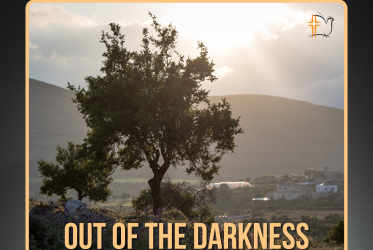Cf. WCC Press Information Info-03-16 of 4 December 2003
Free high resolution photos available (see below)
Speaking during a visit to the World Council of Churches (WCC) in Geneva, the Iranian president Sayyid Mohammad Khatami made a forceful appeal for inter-religious dialogue to be seen as an alternative to religious fundamentalism, and as a source of international peace and stability.
Speaking as a religious personality and an intellectual, President Khatami addressed an audience of religious leaders, diplomats, academics, journalists and staff of the WCC and other ecumenical organizations based in Geneva on 11 December 2003 on the theme of "Religious dialogue and international relations". The prime minister of Norway, H.E. Kjell Magne Bondevik, and the WCC general secretary, Rev. Dr Konrad Raiser, responded to his presentation.
Faced with international tensions that can appear to have a religious dimension, "the dialogue of civilizations, but also the dialogue between religions, particularly between Islam and Christianity, seems to be an absolute and vital necessity," President Khatami said. The Islamic leader noted that it was precisely during the 2001 UN Year of Dialogue among Civilizations that terrorism showed its "ugliest face" with the "tragic attacks" in the USA. "The future of religion will depend on the abandoning of fanaticism, and on (…) mutual comprehension and openness," he stressed. "No religion can hold claim to absolute Truth (…). Dialogue is the foundation which allows for unity in diversity," he said.
The WCC general secretary, Rev. Dr Konrad Raiser, welcomed the commitment to an "open and truthful encounter" manifested by the Iranian leader, and denounced the instrumentalization of religious sentiments by political interests. "We, in the World Council of Churches, are committed to seeing voices of faith defeat those of bigotry, fear and nihilism. Voices of fraternity are called to drown those of hostility, racism and ignorance. We reject the tendency, not uncommon in many Western countries, to perceive Muslims as a threat and to portray Islam and some Islamic nations in negative terms."
Echoing these sentiments, the Norwegian prime minister Kjell Magne Bondevik, who is an ordained minister of the Lutheran Church of Norway, agreed that "we in the West sometimes treat the Islamic world with unforgivable arrogance," but he warned against the danger of religious fundamentalism. "Extremists are trying to spread the message of hate in the name of God (…). Religious leaders can – and must – combat, in words and deeds, the poison spread by extremists in the name of religion. Those who have a strong belief can better understand others with strong belief (…). In many conflicts, religion is considered to be part of the problem. I uphold the idea that religion should be seen as part of the solution".
The visit of the Iranian leader was made in the context of a long-standing involvement of the WCC in inter-religious dialogue. Since 1995, the WCC has sought to foster regular contacts and conversation with Iranian Islamic leaders and intellectuals, with Christian-Muslim seminars being organized alternately in Teheran and Geneva. According to Dr Tarek Mitri, in charge of Christian-Muslim relations at the WCC, these encounters revealed a genuine desire for dialogue and were received with wide interest among Iranians. While focusing on challenges faced today by people of faith, discussions included sometimes divisive issues that preoccupy Muslims and Christians, including human rights and the role of women.
The texts of the speeches by Sayyid Mohammad Khatami, Kjell Magne Bondevik and Konrad Raiser, as well as free high-resolution photos of the event are available on our website:
www.wcc-coe.org/wcc/what/interreligious/khatami-anchor.html
Additional photos are available on the Photo Oikoumene website.






